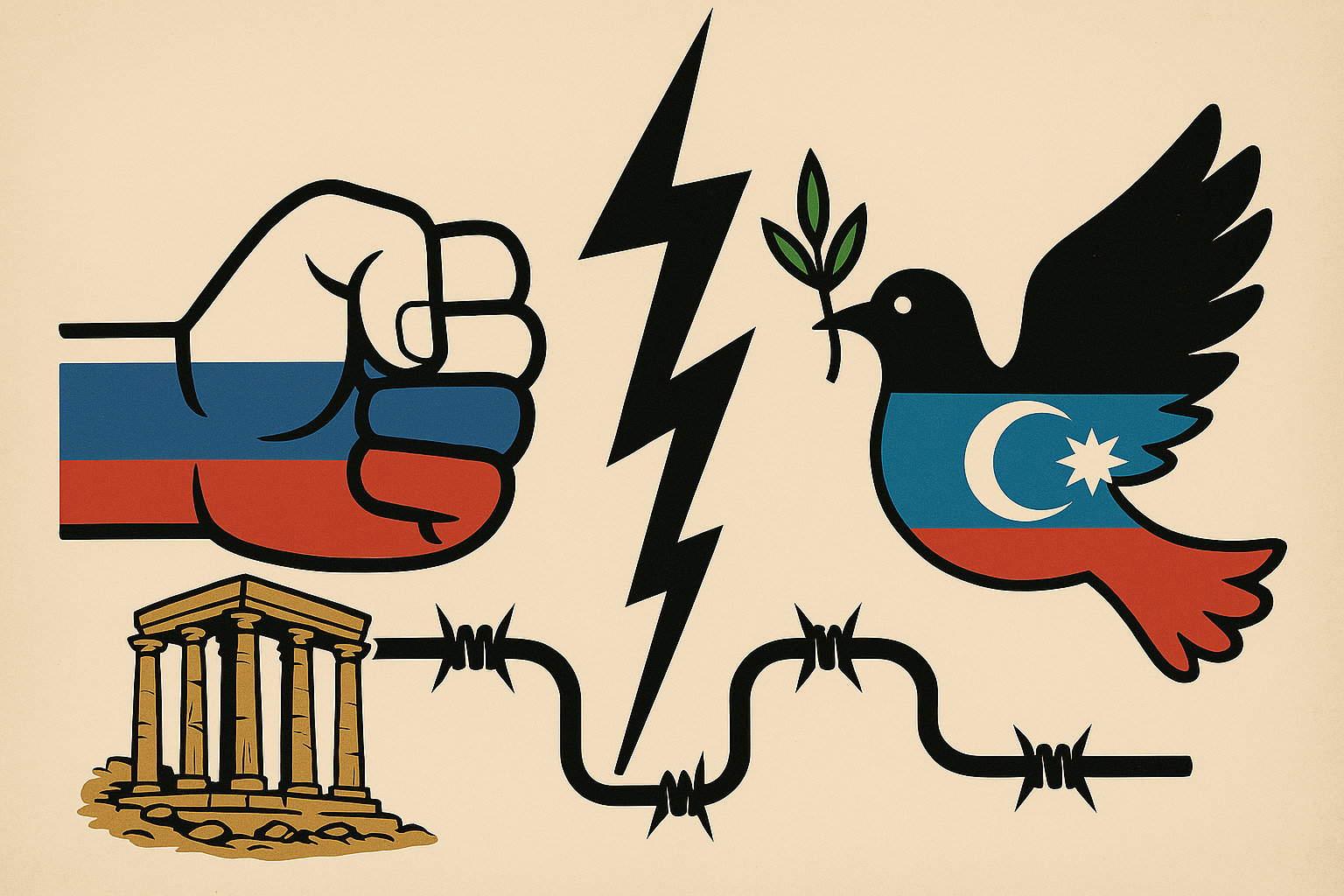By Rustam Taghizade

The recent tensions between Russia and Azerbaijan are not only a diplomatic crisis between the two countries, but also an important turning point that could lead to a shift in the broader geopolitical balance in the region. The violence and casualties recorded during the special operation against Azerbaijanis in Yekaterinburg are perceived not only as a law enforcement measure, but also as a signal of pressure directed directly at Baku. This course of action by Moscow was met with sharp protests in Azerbaijani society, especially among the state elite. The situation is further exacerbated by the Kremlin’s apparent reluctance to either formally acknowledge the incident or to demonstrate any degree of concern.
On July 1, during a meeting of the Ambassador Extraordinary and Plenipotentiary of the Republic of Azerbaijan to the Russian Federation, Rahman Mustafayev, at the Russian Ministry of Foreign Affairs, a note of protest from the Republic of Azerbaijan was presented to the other party, first of all, regarding the serious violation of the law in Yekaterinburg, including the murder and particularly brutal beating and injury of our compatriots, including both Azerbaijani and Russian citizens. Two organized crime groups suspected of drug transit from Iran, online trafficking, and cyber fraud were also detained in Baku. The recent events are Azerbaijan’s harsh response to Russia. Azerbaijan has shown that it is impossible to be harsh towards Azerbaijanis living in Russia.
For many years, Moscow has been trying to maintain its sphere of influence in the post-Soviet space by various means. This system of influence mainly includes security (the Collective Security Treaty Organization), energy projects (LNG, gas pipelines) and information manipulation (figures such as RT, Sputnik, Solovyov). However, in recent years, serious cracks have appeared in this model. As Russia exhausts its resources in Ukraine and faces international pressure, it resorts to tactics of pressure against diasporas and minorities abroad to compensate for its internal weakness. The Yekaterinburg incident also takes place in this context: both to channel social discontent through “migrant hostility” and to send a message against the Azerbaijani diaspora.
In this case, Azerbaijan’s geopolitical position begins to change noticeably. Baku has been pursuing a balanced foreign policy for a long time, trying to maintain balanced relations between Russia, the West and Turkey. However, this incident has created a crack in that balanced policy. Azerbaijan is now taking a more open stance against the Kremlin’s unilateral and hegemonic attitude and is putting its strategic alliance with Turkey more to the fore. This rapprochement could strengthen political and security cooperation not only between Baku and Ankara, but also within the Organization of Turkic States (OTS).
For Russia, this does not only mean losing Azerbaijan. This tension could spread to Central Asia with a domino effect. Kazakhstan is already openly distancing itself from Moscow, while Pashinyan’s Armenia openly questions Russia’s dominance. Kyrgyzstan and Uzbekistan are also leaning towards closer cooperation with Turkey and China. At such a time, the open expression of discontent by an economically and diplomatically important partner like Azerbaijan is a multifaceted blow to Russia’s sphere of influence in the post-Soviet space.
The Kremlin is looking for a diplomatic way out of this tension, but this time traditional methods are not working. Azerbaijani society is very emotionally sensitive, and this emotional energy is also affecting political decision-making. Now the worst-case scenario for Russia is that Azerbaijan, in this new phase of these relations, will fully enter Turkey’s political orbit and the line of Turkish integration stretching from the Zangezur corridor to Central Asia will strengthen. This line is, in fact, an alternative ideological and political platform to Moscow’s Eurasian Union project.
At the same time, tensions are also growing in the information and media sphere. The propaganda against Azerbaijan in Russian state media is sowing discord on ethnic and religious grounds. The openly anti-Azerbaijani stance of figures like Vladimir Solovyov shows that the tools of information warfare have become an extension of official policy. This contradicts diplomatic etiquette, which requires the media to remain neutral in order to normalize relations.
For Azerbaijan, this tension also creates a strategic window of opportunity. Baku has the opportunity to use this event to both increase its leadership among the Turkic states and move relations with Russia to a more equal level. If these processes are successfully managed, Azerbaijan can become not only an economic but also a geopolitical center in the South Caucasus in the coming years.
The Yekaterinburg incident is no longer an ordinary legal issue. It is a sign of the disintegration of Russian influence in the post-imperial era. The future diplomatic and military balance will depend on how this event is managed. Either Russia will compromise and restore relations, or Azerbaijan will become one of the leading players in the new geopolitical space. In either case, this event is a turning point for the South Caucasus and Eurasia. It is also important to note that there are ongoing reports of unjust arrests of Azerbaijanis in Russia. Among them are prominent figures representing the diaspora. The Ukrainian President, Vladimir Zelensky, made contact with his Azerbaijani counterpart, Ilham Aliyev, to express his concern. The geopolitical implications of Russia’s anachronistic imperialist political thought are such that it may once again serve as a catalyst for various conflicts in the South Caucasus and Central Asia. Consequently, it is imperative that all global powers collaborate in opposition to this imperialistic agenda. The escalating geopolitical clout of Azerbaijan following the Second Karabakh War has been a long-standing source of concern for Moscow. Consequently, these processes are evident.

